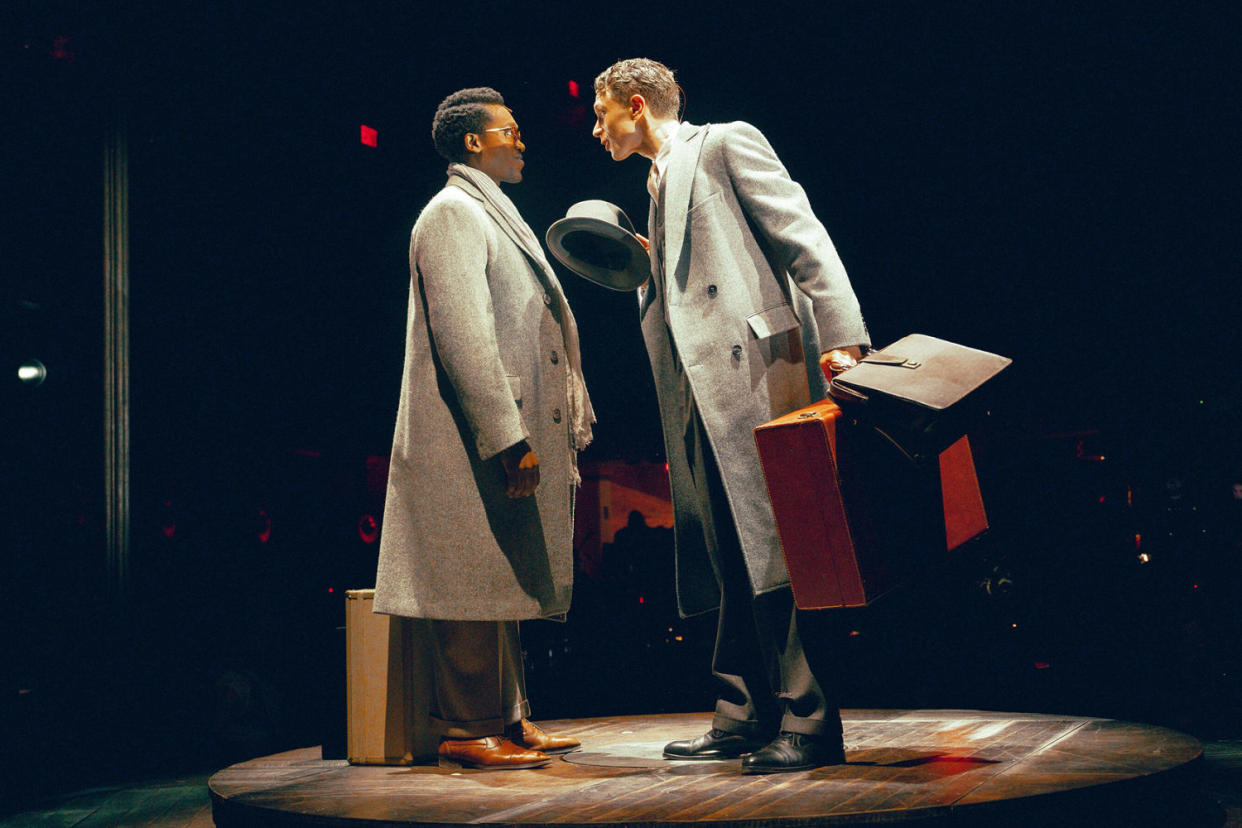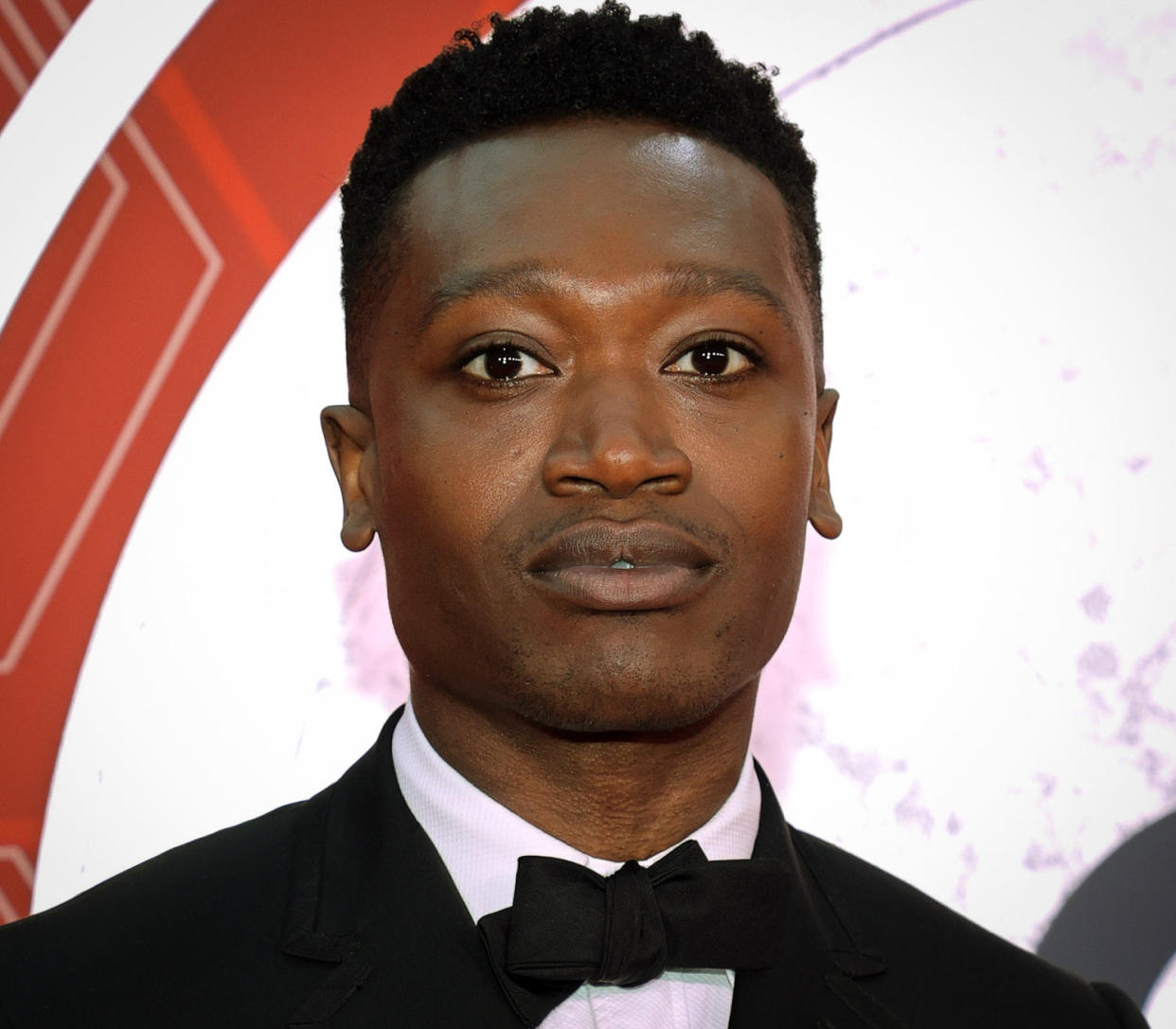Ato Blankson-Wood rebuilds a famous 'Cabaret' role from scratch
One of the main characters in the renowned musical “Cabaret,” bisexual American writer Clifford Bradshaw, is a cipher for author Christopher Isherwood, whose book “The Berlin Stories” serves as the musical’s inspiration. But for Ato Blankson-Wood, the first Black actor to play Clifford on Broadway, he looked beyond Isherwood for inspiration.
“It was really important to me that I wasn’t a Black body playing Christopher Isherwood,” Blankson-Wood told NBC News. “I looked at a lot of his biography, but he is so deeply embedded in the role, I didn’t feel like there was a lot of him I wanted to highlight.”
What Blankson-Wood ended up creating in his Clifford is something of a unicorn on the Broadway stage: a Black queer American fleeing America for the freedoms of Weimar Berlin.
“History can give you a context, but like what is playable, what is actable, what is artistic fuel is how people were actually being treated and how they were relating to each other at that time,” he said. “So I love to go into personal accounts. That helps me the most.”

Central to his research for the role were two Black queer figures, bisexual writer Claude McKay and gay philosopher Alain Locke, both of whom lived — and loved — in Berlin during the fraught time reflected in “Cabaret”: Germany between the World Wars during the rise of Nazism. The two writers, both considered architects of the Harlem Renaissance, met in Germany in 1923 and ended up influencing Blankson-Wood’s Clifford who, like Locke and McKay, seeks refuge in Europe.
“Many queer Black men felt comfortable going to Europe not only because they could explore their sexuality, but they could be treated in ways that made them feel human,” Blankson-Wood said. “The expression of Cliff’s sexuality, his ability to express himself and move fluidly from being in love with Sally to his desire for Bobby, this flirtation he has with Ernst, felt really liberating to be in this body and be able to do that.”
It makes sense, then, Blankson-Wood said, that someone like Clifford, a Black queer man, would flee an America that is only 60 years removed from the Emancipation Proclamation and still in the thick of Jim Crow segregation. It might sound odd to mention the end of the Civil War in reference to a show taking place between 1929 and 1930, but it’s appropriate given that this version of “Cabaret” underscores the cyclical nature of history, especially its atrocities.
Bringing nuance and fresh shades of meaning to a traditionally white role is a new challenge, but one that makes sense in a career that has become a testament to the expanding range of depictions available to queer Black actors on Broadway.
“I feel very fortunate,” he said. “There was a time where I was scared that my sexuality and race would hinder me from getting to play diverse roles.”
Tony-nominated for his role in the hit play and cultural phenomenon “Slave Play,” Blankson-Wood said he does see throughlines between that show and “Cabaret,” particularly redefining and expanding what it means to be a fully developed Black character.
“Nearly every role I’ve ever played brings me closer to some human truth in my everyday life,” he said. “I’m attracted to these roles because I get to liberate myself over and over and over again through them.”

Much like “Slave Play,” “Cabaret” holds a complicated and uneasy message for people navigating the world outside the August Wilson Theatre. Blankson-Wood sees many parallels between the world of “Cabaret” and contemporary American society, including the onslaught of anti-LGBTQ+ legislation funneling through statehouses nationwide.
“There is an explosion of self-expression and sexuality and gender expression and then there is a wave of resistance,” he said. “It makes me aware of our moment now under a completely different lens. I’m like, ‘How do we avoid a repetition of that moment?’”
But as is often the case with live theater, this “Cabaret” revival is trying to hold up a mirror to our own world so that we might learn from it.
“We’re really talking about cycles of violence,” Blankson-Wood said of a scene in which his character is beat up by a group of Nazis. By the show’s end, the cast is seen on a rotating platform, swirling around the Emcee, played by Eddie Redmayne, trapped in a vicious cycle. While the original scene is an example of German-on-German violence, the new one adds a second dreaded layer of racial animus.
“It’s not just about the violence of that moment in Germany,” Blankson-Wood said, “it is also about the violence that was going on in America against Black bodies.”
For more from NBC BLK, sign up for our weekly newsletter.
